b. November 1st, 1924 in Jackson (Mississippi)
d. November 19th, 1964 in Chicago (Illinois)
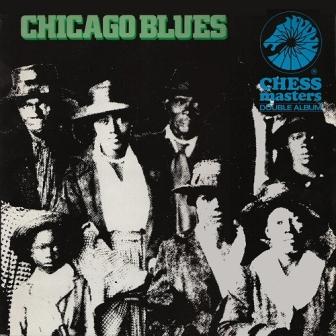
CHESS MASTERS
Chess
September 1949
Ses parents George et Mary étaient musiciens (son père jouait de la guitare et de l'harmonica et sa mère du piano). Pendant son enfance, Johnny apprend d'abord l'harmonica puis le piano. Il rejoint Chicago avec sa famille en 1946. Fasciné par Big Maceo, il devient un de ses élèves (tout comme Eddie Boyd) développant rapidement un style urbain dans la continuité de son aîné. C'est aussi Maceo qui lui présentera Letha Bethley qui deviendra sa femme. En septembre 1949, il accompagne Muddy Waters chez Aristocrat (qui devient Chess peu après) lors d'une séance qui débouchera sur "Screamin' and cryin'". Mais, Johnny en profitera pour graver deux titres en leader (Muddy Waters et "Baby Face" Leroy Foster aux guitares) : "Big town playboy" qui deviendra un standard du blues (repris notamment par Eddie Taylor) et le magnifique "Shelby County".
His parents George and Mary were musicians (his father played guitar and harmonica, and his mother piano). During his childhood, Johnny learns first harmonica and then piano. He joined Chicago with his family in 1946. Fascinated by Big Maceo, he became one of his students (like Eddie Boyd) rapidly developing urban style in line with his predecessor. It is also Maceo who introduce him to Letha Bethley who would become his wife. In september 1949, he plays behind Muddy Waters at Aristocrat (which becomes Chess soon after) in a session that will lead to "Screamin' and cryin'". But, Johnny takes the opportunity to cut two titles as a leader (Muddy Waters and "Baby Face" Leroy Foster on guitars) : "Big town playboy" that will become a blues standard (covered especially by Eddie Taylor) and the magnificent "Shelby County".
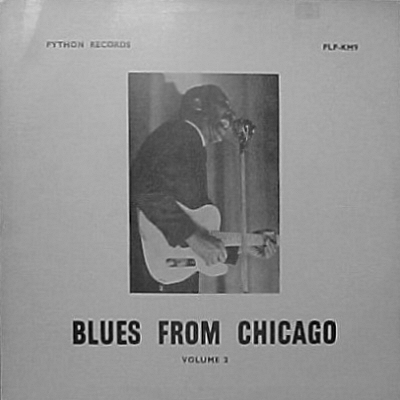
BLUES FROM CHICAGO vol.2
Python
October 1953
Parmi toutes ses collaborations, il faut retenir qu'il fut le pianiste de Tampa Red (1949-1953) puis d'Elmore James (1952-1960) et participa, ainsi, à de nombreuses séances primordiales du Chicago blues. Particulièrement actif au club Sylvio's (puis, plus tard, au Tay May Club) dans le West Side (en vedette ou avec Elmore James), Johnny Jones devient rapidement un des meilleurs pianistes de la ville. Dans ce LP, on trouve un morceau de 1953 quand Johnny était le pianiste d'Elmore James. Il s'agit de l'excellent "Dirty by the dozen" pour le label Flair ou il est accompagné par Elmore à la guitare et ses collègues J.T. Brown (saxophone), Ransom Knowling (basse) et Odie Payne (batterie).
Of all his collaborations, we must remember that he was the pianist of Tampa Red (1949-1953) and then of Elmore James (1952-1960) and participated to many Chicago blues crucial sessions. Particularly active at Sylvio's club (and later, in May Tay Club) on the West Side (as a leader or behind Elmore James), Johnny Jones is quickly becoming one of the best pianists in the city. In this LP, there is a track from 1953 when Johnny was Elmore James' pianist. This is the excellent "Dirty by the dozen" for the Flair label where he is accompanied on guitar by Elmore and his colleagues J.T. Brown (saxophone), Ransom Knowling (bass) and Odie Payne (drums).
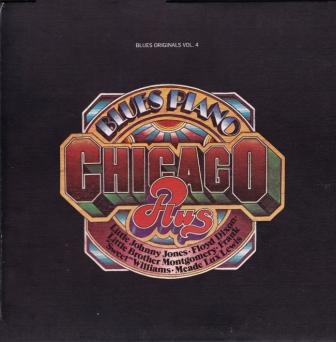
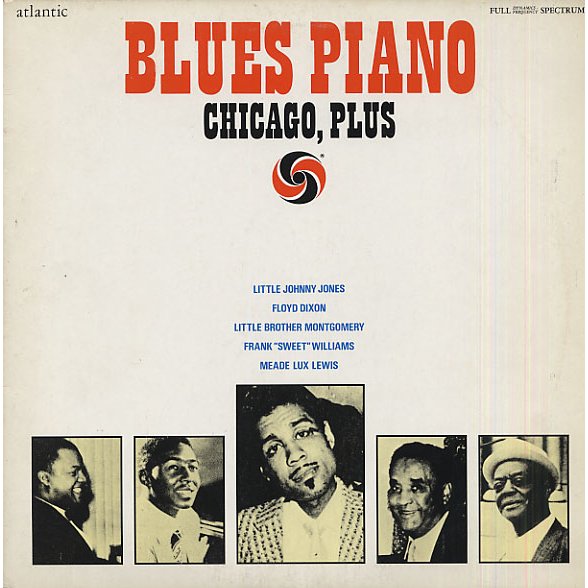
BLUES PIANO CHICAGO PLUS
Atlantic
October 1953
De nouveau en position de leader occasionnel de l'orchestre d'Elmore James, Johnny a l'opportunité d'enregistrer pour Atlantic. Il grave une poignée de titres superbes en particulier "Wait baby" et "Chicago blues". Malheureusement, ces morceaux, malgré leur excellence, n'obtiendront aucun succès.
Occasional leader of the Elmore James' backing band, Johnny has the opportunity to record for Atlantic. He cut a handful of great tracks especially "Wait baby" and "Chicago blues". Unfortunately, these tracks, despite their excellence, will not get no success.
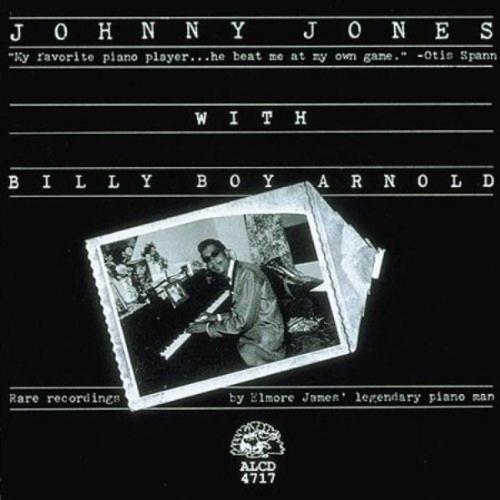
JOHNNY JONES WITH BILLY BOY ARNOLD
Alligator
June 1963
Outre quelques anthologies ou l'on peut retrouver une poignée de titres de Johnny Jones, il n'y a qu'un seul disque qui lui soit entièrement consacré. Il s'agit de "Johnny Jones with Billy Boy Arnold" édité tardivement par Alligator en 1979. Il capture une performance en public de Johnny Jones en compagnie de l'harmoniciste Billy Boy Arnold sur la scène du Fickle Pickle. A ce moment là, George Mitchell et Michael Bloomfield étaient les jeunes producteurs du club. Ils demandèrent à Norman Dayron d'enregistrer le duo avec son équipement d'enregistrement portable. Les deux bluesmen se partagent le chant dans un registre sensiblement différent mais leur cohésion musicale est parfaite. Le disque donne une bonne idée de ce qu'était une soirée de blues dans un club de Chicago à cette époque.
Besides some anthologies in which we can find a handful of Johnny Jones' songs, there is only one disc that is completely dedicated to his work. This is "Johnny Jones with Billy Boy Arnold" issued late in 1979 by Alligator. It captures a public performance by Johnny Jones accompanied by harmonicist Billy Boy Arnold on Fickle Pickle's stage. At that time, George Mitchell and Michael Bloomfield were young club's producers. They asked Norman Dayron to record the duet with his portable recording equipment. Both bluesmen share the song in a slightly different tone, but their musical cohesion is perfect. The album gives a good idea of what was a night of blues in a Chicago's club at that time.
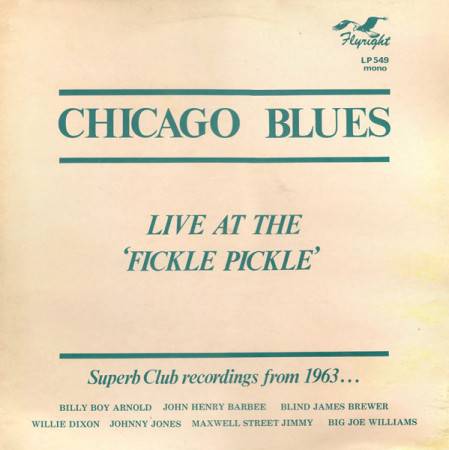
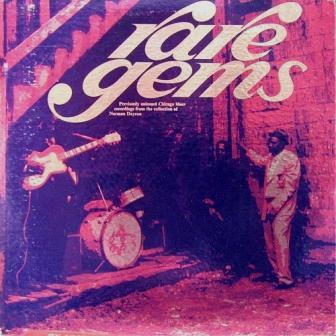
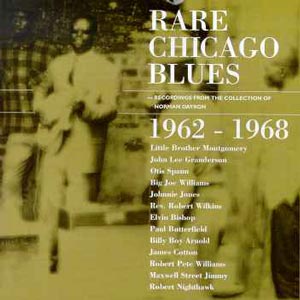
LIVE AT THE FICKLE PICKLE
Flyright
RARE GEMS
Roots
RARE CHICAGO BLUES
Rounder
June 1963
Dans le LP Flyright "Live at the Fickle Pickle", on trouve trois morceaux inédits (dont "Johnny's boogie" avec Willie Dixon) de la même performance au Fickle Pickle mais non repris dans la version Alligator. Les deux autres anthologies reprennent des titres déjà publiés dans la version Alligator.
In the Flyright LP "Live at the Fickle Pickle", there are three unreleased tracks (including "Johnny's boogie" with Willie Dixon) of the same Fickle Pickle performance but not included in the Alligator release. The two other anthologies propose titles already issued in the Alligator release.